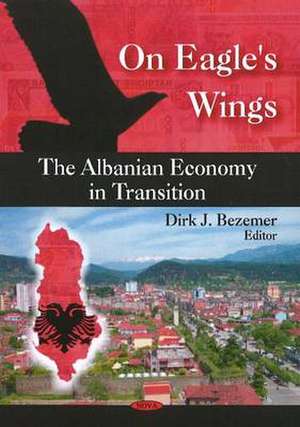On Eagle's Wings: The Albanian Economy in Transition
Editat de Dirk J Bezemeren Limba Engleză Paperback – apr 2009
Preț: 270.55 lei
Nou
Puncte Express: 406
Preț estimativ în valută:
51.77€ • 54.12$ • 43.75£
51.77€ • 54.12$ • 43.75£
Carte indisponibilă temporar
Doresc să fiu notificat când acest titlu va fi disponibil:
Se trimite...
Preluare comenzi: 021 569.72.76
Specificații
ISBN-13: 9781604565461
ISBN-10: 1604565462
Pagini: 157
Dimensiuni: 179 x 255 x 12 mm
Greutate: 0.4 kg
Editura: Nova Science Publishers Inc
Colecția Nova Science Publishers, Inc (US)
ISBN-10: 1604565462
Pagini: 157
Dimensiuni: 179 x 255 x 12 mm
Greutate: 0.4 kg
Editura: Nova Science Publishers Inc
Colecția Nova Science Publishers, Inc (US)
Cuprins
Introduction; A Political Economy History of Albania's Transition to the Market (1990-2004)); Growth but Not Development: The Ponzi Economy and its Lessons; Stabilisation Policies and Structural Reforms in Albania since 1997 -- Achievements and Remaining Challenges; The Emigration Experience and its Impact on the Albanian Economy in the Early Transition Period; Labour Markets and Emigration in Albania; Politico -- Economic Institutions and the Informal Sector in Albania; Socioeconomic Effects of Transition and Conflict in Albania ; The Unfinished Business of Land and Property Reform in Albania; Structural Adjustments for a Sustainable Agriculture in Albania; Index.
